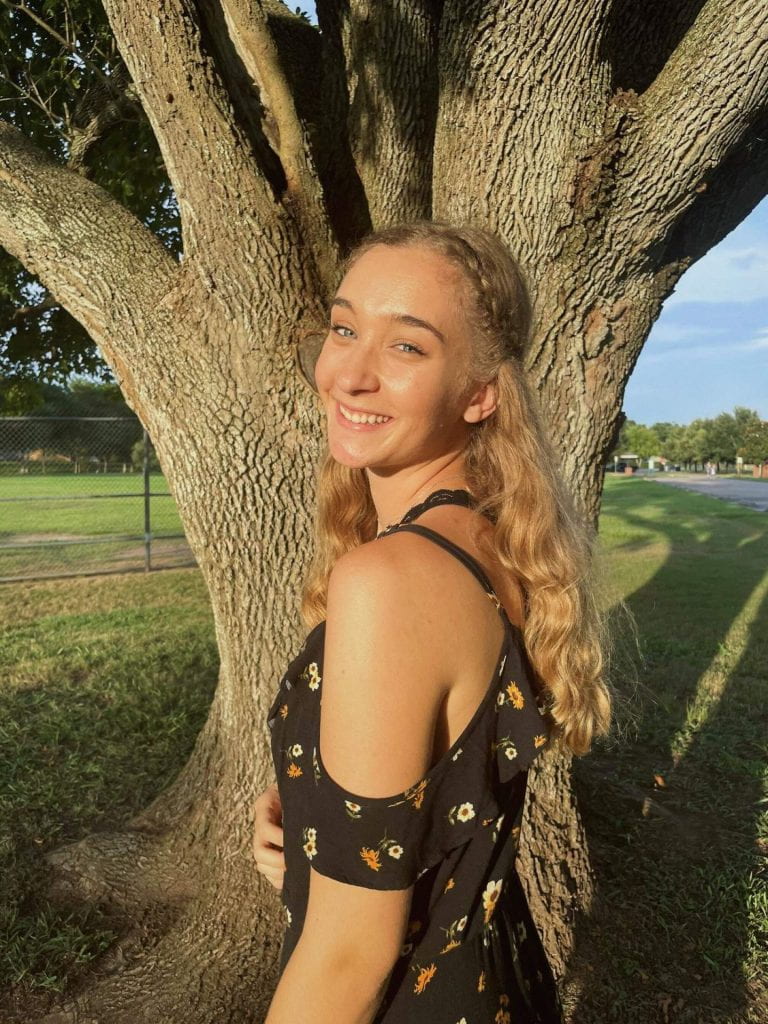How an environmental science student became a writing tutor and why you should try

Photo by “green chameleon” on Unsplash.
This post was written by Maria Calcote, an undergraduate consultant at the UWC.
Writing has always been a second home to me. Ever since I was a little kid, I was addicted to the power that a pen could give you. I could let my creativity run free, write characters and places out of thin air, and channel my hurts and hopes into lines of poetry.
It’s not my only passion, though, as I have always loved nature and learning about the animals and plants that surround us. I am studying environmental science at Baylor, and the desire to preserve the biodiversity of our planet for future generations drives me and pushes me in my studies. But even though I love my major, writing has always been at the back of my mind.
Now, let me set the scene: it’s spring of my sophomore year at Baylor, I’m finally getting used to things college life despite the worries and unknowns during a pandemic, and now I am looking for a student job. My first motivation was, obviously, to have some spending money. But I knew that I also wanted to make a positive impact with my job. I didn’t want to do something mindless or boring—I wanted something that would help me grow as a person and as a student. So, I applied to the University Writing Center and interviewed for the position, all the while telling myself not to get my hopes up because I probably won’t get it (I’m a bit negative sometimes…I’m working on it!). I thankfully proved myself wrong and started working at the writing center that next fall.
My first week of appointments finally came after weeks of training, and I was nervous. Like, really nervous. Imposter syndrome can often be a struggle for me, and this time was no exception. My mind raced with thoughts like, “You’re not actually a good writer,” “All these other tutors are way more qualified” and other discouraging messages that clouded my head. I’m also a bit quiet at first, so I was worried I wouldn’t be able to help the writers that came in or wouldn’t know what to say. “What did I get myself into?”
Those doubts and worries went away, though, as I talked to my first writer. The focus wasn’t on me anymore—I was here to serve her; I wasn’t here to worry about my own insecurities. She needed help with her Odyssey paper, and I could tell she was nervous and felt unsure of her writing. I loved seeing her confidence grow as I showed her the potential in her writing and helped her brainstorm ways to improve it. That’s what makes this job so rewarding; I get to come into work and forget myself for a bit, serving another and helping them find their own writing voice. Whatever class grade is weighing on you, whatever family problem is clouding your mind, you get to set that aside for a bit to help someone else. The UWC became a place to rest, away from stressful STEM classes, a place to grow and to serve.

Photo by “Giulia
Bertelli” on Unsplash.
Although I knew that my tutoring work would help me grow in my writing, I didn’t know at the time how helpful this job would be for my environmental science classes. During that same fall starting at the UWC, I started writing these big, data-heavy lab reports for my Field Techniques class. This was my first real experience with scientific writing, so it was a bit overwhelming.
This is where my writers from my appointments got to teach me. Well, they didn’t know they were doing it, but they did! Since I often had appointments with students writing for various STEM classes, this forced me to expand my knowledge of this writing style. Having to help other students do this solidified the confidence in my ability to do what I taught them.
For instance, I noticed how difficult it can be to present data or statistics without directly quoting that source, since most scientific styles prefer writers to paraphrase. I’ve also seen many writers struggle with the rigid sections that you must write in a scientific paper, such as Abstract, Methods, Results, etc. Through my work at the UWC, I learned that remaining organized and gathering one’s sources early on is crucial when writing scientific papers, and this helped me to improve my lab reports, environmental assessments, and other scientific projects.
Looking back at my first year at the UWC, it has been one of the most formative places in my Baylor journey. When I think back to college in my later life, I know one of the places I will miss the most is that little corner of Moody Library on the second floor. It not only gave me an opportunity to grow and to serve; it gave me the courage to have confidence in my talent and confidence in my place at the UWC. I am proud of my writing ability, and I love that I get to help others find their voice in writing, too. I’ve found that my environmental science background doesn’t place me at a disadvantage; instead, it offers a different but useful perspective. My own experience as a STEM student provides me with the knowledge to advise other students who are STEM majors at Baylor.
I really encourage you to keep writing, regardless of your major. No matter what, you’ll always need writing. Whether it’s for resumes, grant proposals, or stories you write in your free time, writing will be there. If you are interested in working at the UWC but aren’t in a major closely related to writing, apply! The writing center not only accepts tutors of all majors, but we actually need students of all majors. But, even if you don’t end up working here, come and visit us! We’re here to help, whether it’s an English paper or a lab report—we’re here for you!

Maria is a junior environmental science major at Baylor University.